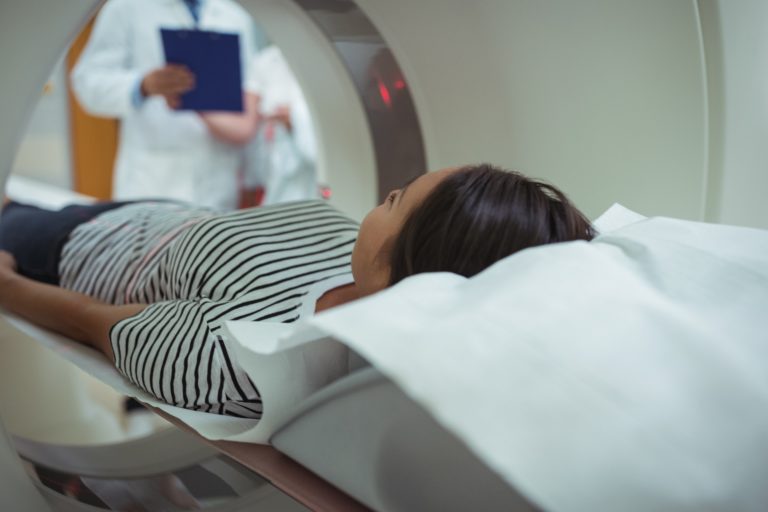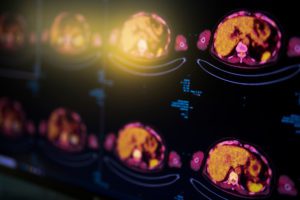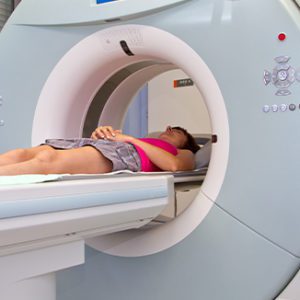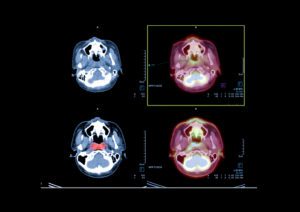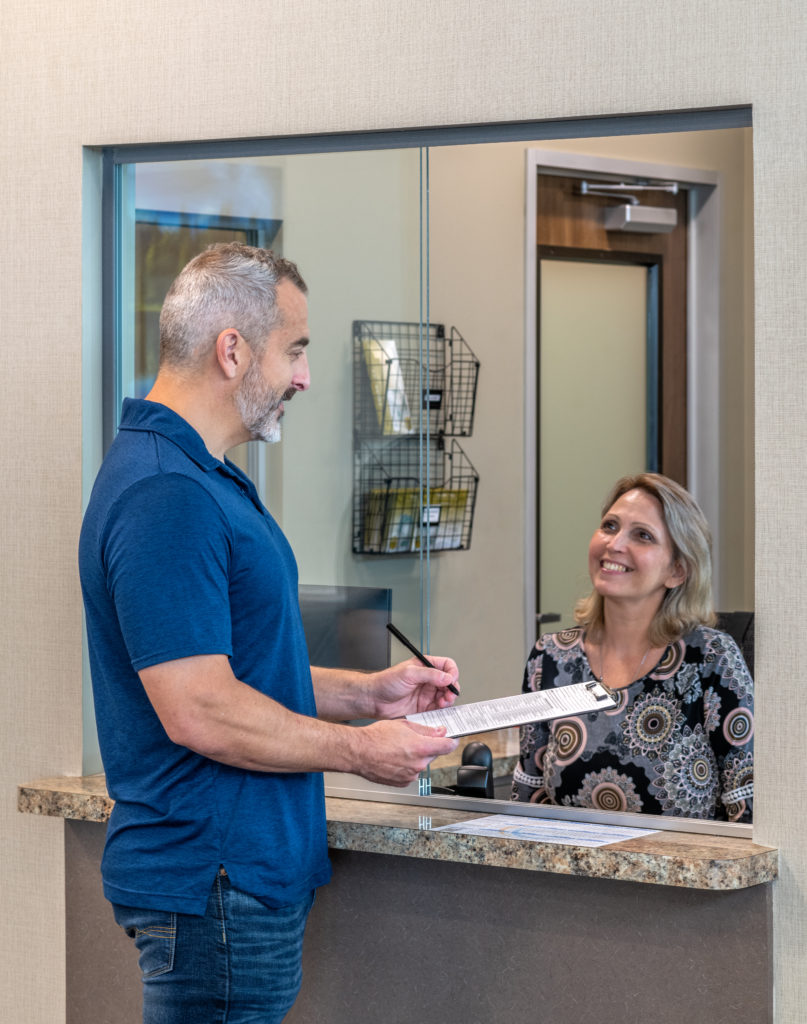A technologist will insert an intravenous (IV) catheter into a vein in your hand or arm and inject a radiotracer. There are no side effects associated with the injection. It will take approximately 60 minutes for the radiotracer to travel through your body and to be absorbed by the organ or tissue being studied. During this time, you will be asked to rest quietly, avoiding excessive movement, or talking. You may be asked to drink some contrast material that will localize in the intestines and help the radiologist interpret the study.
You will be positioned on an examination table and moved into the PET/CT scanner and the imaging will begin. You will need to remain still during imaging. The PET/CT images will take 20-30 minutes to complete.
You will be free to leave the facility and resume normal activities as your health permits. A radiologist reads your PET/CT, and the results are reported directly back to your doctor.
You will receive specific instructions, but generally, you should eat a high-protein, low-carbohydrate diet and avoid strenuous activity the day before your appointment.
On the day of your PET/CT scan, do not eat or drink anything (except water) for six hours before your scan. You may take your regularly scheduled medications. You should wear comfortable, loose-fitting clothing with no metal zippers or clips. Please let our staff know of any medications you are taking, if you have diabetes or kidney disease or if you are pregnant or breastfeeding.
Yes, a PET/CT scan is considered safe. The radioactive tracer and CT imaging use low radiation doses that leave the body quickly. Drinking plenty of fluids after your scan helps your body flush the traces from your system. Allergic reactions to the radiotracer are extremely rare, and the valuable diagnostic benefits far outweigh the minimal risks.
Please let our facility and your doctor know if you are pregnant or breastfeeding, as you should not get a PET/CT scan. In addition, notify our radiology technician if you have diabetes or a history of kidney disease as they may also affect the results of the scan.
Yes, the PET/CT scanner is open on both ends and is not a long, enclosed tube like some MRI machines, so most people feel comfortable inside. The imaging portion of the scan is relatively short, usually lasting around 30 minutes. However, if you have anxiety about your imaging appointment, please let our staff know. We are here to support you, and your doctor may be able to prescribe medication to help you relax.
A CT scan uses X-ray images, or slices, to create a detailed structural picture of your bones, organs and tissues. The PET scan shows how your organs and tissues function by tracking metabolic activity with the radiotracer. Together, these scans give your doctor a more complete view of what is happening inside your body.
Yes. Your oncologist may order a PET/CT scan to evaluate the stage of cancer, as well as determine the location and tissue for a biopsy, evaluate how a cancer treatment is working, create a plan for radiation therapy treatment, or check for new cancer growth or evidence of disease after treatment has ended.

